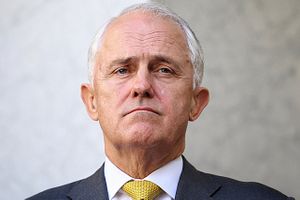With January less than half over, two scandals have rocked his administration, and only inflamed the sense that Turnbull’s government is fundamentally on the wrong side of a growing divide between the haves and have-nots of Australian society.
This year’s first crisis was a hangover from unresolved business in 2016. Over the past few months, Australia’s welfare provider, Centrelink, has pursued a crude automated debt recovery policy that has targeted thousands of former Australian welfare recipients.
The policy aimed to recover money from welfare recipients the system believed to be overpaid up to six years ago – and has been a political disaster for the Turnbull government seeking to renew its fortunes after a largely unproductive 2016.
Stories have emerged highlighting the callousness of the automated debt recovery system: In one instance, a long suffering cancer patient was victim of the policy; in another, one young Australian was falsely indebted to the tune of $25,000.
While there are of course individual cases of Australians taking advantage of the welfare system, it’s becoming clear that most of those targeted by this policy are not in that category. And while the scheme has quickly become a PR disaster for the Turnbull government, the total debt it is likely to recover feels hardly worth the pain.
Trumbull’s opponents are quite rightly questioning the worthiness of the policy, and the relentless focus by the government on recovering the dubious debts of poor, young, and at times sick Australians, while failing to solve more costly issues such as multinational tax avoidance.
The scandal just won’t go away for the Turnbull government, and will continue to dominate discussion so long as the prime minister stands idly by, seemingly unwilling to intervene.
But the debt recovery crisis was just the beginning. Turnbull’s hopes for a fresh start in 2017 hit another hurdle at the weekend, with health minister Sussan Ley becoming embroiled in an entitlements scandal.
The minister’s questionable visits to Australia’s Gold Coast in 2014-15 were paid for by the taxpayers, in a repetition of similar entitlement scandals that have gripped Australian politics in recent years.
Ley is one of Turnbull’s staunchest allies in cabinet, and with the prime minister’s control over his own party wafer-thin, her support carries extra importance. Ley has now stepped aside, pending an investigation that will only prolong the media speculation into her future.
To make matters worse, former Prime Minister (and former health minister) Tony Abbott’s loyalists are now suggesting he could replace Ley, signaling an escalation in the power struggle between Abbott’s far-right wing and Turnbull’s center-right wing of the governing Liberal Party.
With Ley’s demise, Turnbull’s hold over his party room and his ministry weakens. Given that the primary criticism of his leadership has been his inability to shrug off the right wing of his party, the Prime Minister’s position now seems even more precarious.
These two emerging scandals are not just minor inconveniences. They highlight the deep faults within the government that have rendered it incapable of governing effectively and with authority.
It is becoming clear that Turnbull’s government is either unaware of the deep trends in public sentiment that are proliferating globally and have led to explosive populist movements in Europe, the U.K. and the U.S., or are simply incapable of contending with them.
While populism has not taken hold in Australia to the extent it has in Europe, this is largely because of the ineptitude of those parties in Australia trying to take tap into it, not because of the public’s confidence in major parties or even democracy itself, which is at an all time low.
The Turnbull government’s decision to enable ministers to enjoy generous entitlements, and big business to avoid paying their fair share, while at the same time haranguing some of Australia’s poorest welfare recipients for debts that have often turned out to be illegitimate, seems a bizarre tactic to address the inequities in Australian society that fuel public disquiet.
That Turnbull’s government has now formalized its standing on the fortunate side of the wealth and opportunity divide only emboldens populists rallying against the political establishment.
Malcolm Turnbull may have wished for a fresh start in 2017. Instead, the baggage of last year remains, and his government continues to limp perilously onward, blinded to the challenges of a more uncertain future.
Edward Cavanough is the Manager of Policy at The McKell Institute. He writes at www.edwardcavanough.com & tweets at @edwardcavanough.
































